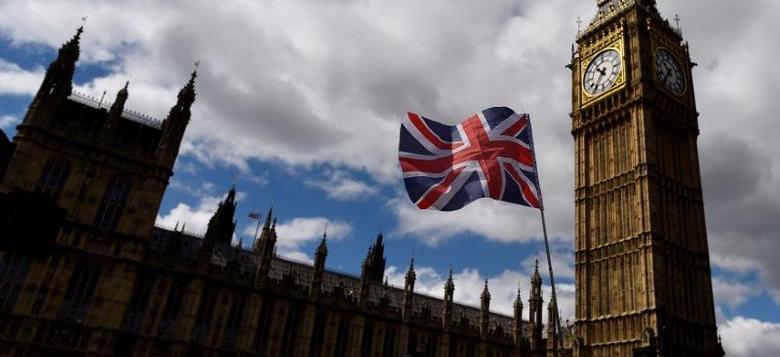Jalandhar: Even as the protest against the three contentious agriculture laws continues at Delhi’s borders, the British parliament is all set to hold a debate on the farmers’ protest on March 8.
The UK parliament’s debate on the ongoing protest has come at a time when the Modi government has been casting aspersions on any protests and rallies held abroad against the farm laws by calling it an ‘anti-national’ bid led by the Congress party. On January 5, over 100 MPs from the UK sent a letter to British Prime Minister Boris Johnson expressing concern over the farmers’ protests in India and sought his stand.Since then, the move to hold a debate on the issue has been amplified via an e-petition urging the Indian government to ensure the safety of the protesters and press freedom. It has been signed by over 115,676 people.
The last round of talks between the farmer unions and the Centre were held on January 22, four days before the tractor parade, which ended in chaos and violence at Red Fort in Delhi on January 26.
Responding to The Wire’s questions from the UK, British Labour MP from Slough, Tanmanjeet Singh Dhesi, said that while the legislature spends most of its time discussing local and national issues, the beauty of being a British parliamentarian is that almost every day the chamber conducts debates on what is happening around the world. “It enriches our democracy and strengthens the capabilities of MPs, since they must have the ability to research widely and build an international outlook on life. Such debates inform our collective national thinking and also aid in providing constructive criticism to our friends and allies globally,” he said.
On the Indian government’s allegation that protests and rallies in favour of the protests were a ‘conspiracy to defame India’, Dhesi said, “It certainly is not anti-national, or anti-India, to be voicing concerns about the policies of the government of the day, whosoever that may be. In the UK, we consistently scrutinise the actions of our government and also foreign governments; indeed, it’s the sign of a healthy democracy.”
Tanmanjeet Singh’s paternal uncle, Paramjit Singh Raipur, who is a Shiromani Akali Dal (SAD) leader from Jalandhar’s Raipur village, said that the development was a big achievement for farmers. “While the Modi government was not even willing to listen to the farmers, the UK Parliament was holding a debate on this issue. We feel proud that Tanmanjit Singh along with other UK MPs vociferously raised the issue of farmers’ protest in the UK parliament ever since the protests started. Tanmanjeet has his roots back home in Jalandhar and as we come from a farming family, it is an emotional matter for us like many others protesting against these three black laws for the last over six months now,” Paramjit said.

British MP Tanmanjeet Singh Dhesi who spearheaded the initiative to send the letter.
Paramjit also said that by conducting a formal debate on March 8, the farmers’ movement would get a boost and the Modi government would certainly come under pressure. “We appeal to the Modi government that they should end this deadlock and listen to the farmers,” he added.
Echoing similar sentiments, Krantikari Kisan Union president Darshan Pal said that it was a matter of both pride and shame that while the Indian government was not addressing the demands of the protesting farmers, the British parliament was holding a debate on it.
“It is because of the insensitivity, ignorance and ego of the Modi government that the UK government is holding a debate while protests are being held across the world. Leave addressing our demands, they did not even acknowledge the death of more than 270 farmers in the protests till date. Farmers’ basic human rights were trampled upon, basic facilities were stopped but instead of listening to them, the government ignored them. We welcome the UK parliament’s initiative, as our only concern is to get the three farm laws scrapped,” Pal said.
Notably, several UK MPs have been leading a sustained campaign in support of the farmers’ protest on social media, especially on Twitter. Claudia Webbe, the MP from Leicester East, who supported the farmers’ protest and spoke out against the arrest of Disha Ravi, Nodeep Kaur and the attack on press freedom received threats of sexual violence and racist slurs on Twitter.
In her letter to UK PM Boris Johnson dated February 8, Claudia Webbe had written: “I urge you to formally raise concerns about the mistreatment and violence against protestors with your counterparts in the Indian government and encourage them to listen to the farmers concerns and engage with them. I also urge you to immediately cease the sale of weapons including water cannons, tear gas and batons, which could be used against peaceful protestors in India.”
Furthermore, the MP from Leicester East, said, “I believe the UK government must revise the Conceptual Framework on Agriculture and the UK-India Infrastructure Technical Co-Operation Facility, which promotes contract farming and finances consultants to “alleviate bottlenecks to private sector investment in agriculture’ in India-both issues that the farmers are protesting. I also encourage your government to stop exports of pesticides banned in the UK to India and other countries, including Paraquat, which is responsible for thousands of farmer deaths in India- a situation so severe that doctors in India have restored to hunger strikes demanding a ban on its usage.”
Claudia Webbe concluded her letter by saying that the UK must lead the international community in holding the Indian government to account for its actions.Earlier in December 2020, 36 British MPs had written to the UK Foreign Secretary Dominic Rabb and urged him to raise the issue of farmers’ protest with the Indian government.
































